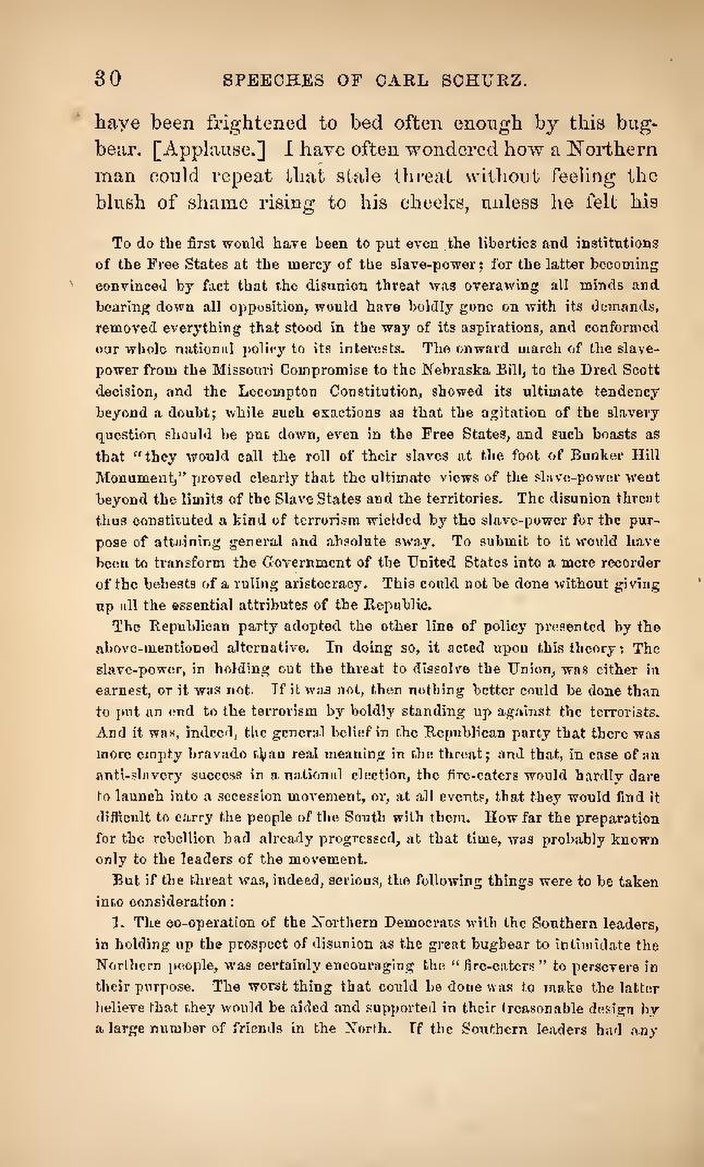have been frightened to bed often enough by this bugbear. [Applause.] I have often wondered how a Northern man could repeat that stale threat without feeling the blush of shame rising to his cheeks, unless he felt his
To do the first would have been to put even the liberties and institutions of the Free States at the mercy of the slave-power; for the latter becoming convinced by fact that the disunion threat was overawing all minds and bearing down all opposition, would have boldly gone on with its demands, removed everything that stood in the way of its aspirations, and conformed our whole national policy to its interests. The onward march of the slave-power from the Missouri Compromise to the Nebraska Bill, to the Dred Scott decision, and the Lecompton Constitution, showed its ultimate tendency beyond a doubt; while such exactions as that the agitation of the slavery question should be put down, even in the Free States, and such boasts as that “they would call the roll of their slaves at the foot of Bunker Hill Monument,” proved clearly that the ultimate views of the slave-power went beyond the limits of the Slave States and the territories. The disunion threat thus constituted a kind of terrorism wielded by the slave-power for the purpose of attaining general and absolute sway. To submit to it would have been to transform the Government of the United States into a mere recorder at the behests of a ruling aristocracy. This could not be done without giving up all the essential attributes of the Republic.
The Republican party adopted the other line of policy presented by the above-mentioned alternative. In doing so, it acted upon this theory: The slave-power, in holding out the threat to dissolve the Union, was either in earnest, or it was not. If it was not, then nothing better could be done than to put an end to the terrorism by boldly standing up against the terrorists. And it was, indeed, the general belief in the Republican party that there was more empty bravado than real meaning in the threat; and that, in case of an anti-slavery success in a national election, the fire-eaters would hardly dare to launch into a secession movement, or, at all events, that they would find it difficult to carry the people of the South with them. How far the preparation for the rebellion had already progressed, at that time, was probably known only to the leaders of the movement.
But if the threat was, indeed, serious, the following things were to be taken into consideration:
1. The co-operation of the Northern Democrats with the Southern leaders, in holding up the prospect of disunion as the great bugbear to intimidate the Northern people, was certainly encouraging the “fire-eaters” to persevere in their purpose. The worst thing that could be done was to make the latter believe that they would be aided and supported in their treasonable design by a large number of friends in the North. If the Southern leaders had any
